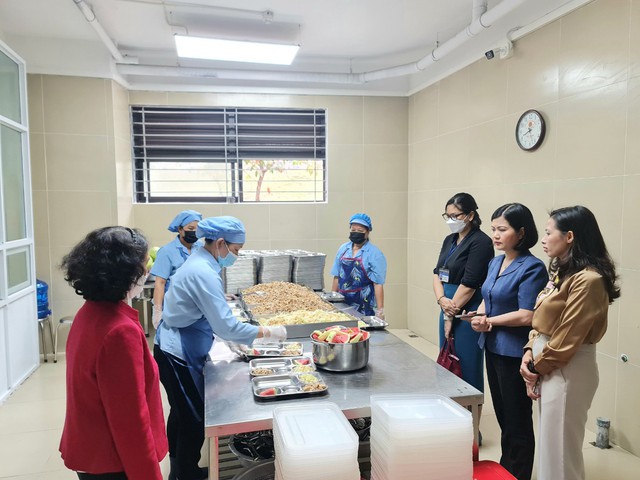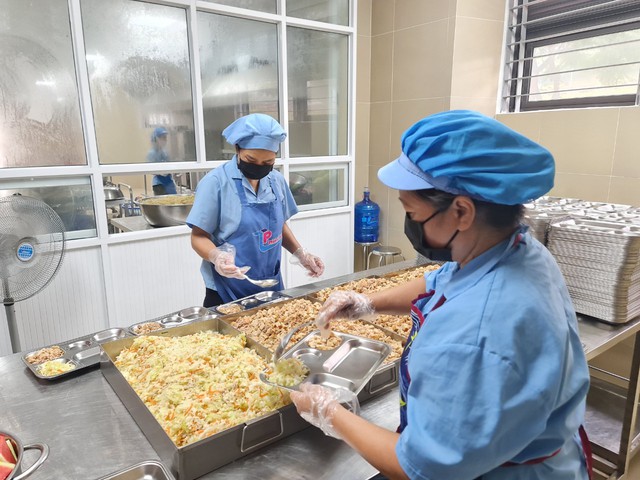Hanoi promotes food safety in school kitchens
The move aims to ensure food safety and avoid foodborne illness among children.
Sub-municipal agencies in Hanoi have recently been actively monitoring the origin of food in school kitchens to ensure food safety and hygiene standards to benefit students' health.
In the first nine months of 2022, Hanoi set up 806 inspection teams to check more than 20,600 establishments. Nearly 16,000 have complied with food safety and hygiene standards, accounting for 82.1%, while infringing establishments number more than 3,600 and are fined more than VND4 billion ($160,826).
Leaders of Long Bien District, Hanoi, inspect food safety in school cafeterias in the district. Photo: Thien Tam |
Luong Thi Minh Nguyet, Head of Long Bien District Health Division, said that all 63 public schools in the district have kitchens operating under the "Improving Self-Management Capacity for Food Safety in School Canteens" model.
"Schools have set up food safety self-monitoring groups, assigning tasks to each member to monitor the origin and quality of food used by school kitchens to ensure food safety and hygiene standards," Nguyet said.
He added that for many years when the end of the school year approaches, the People's Committee of the Long Bien District has been asking to review food suppliers and evaluate their quality and efficiency before signing the contract with them for the following year. In this way, food safety inspection and monitoring have been synchronized and effectively implemented in the district.
According to Hanoi's health sector, the city currently has 4,350 school canteens. Since the beginning of 2022, the city has set up more than 900 inspection teams to monitor food safety, which has detected ten establishments violating food safety standards and fined them VND132 million ($5,308).
To protect students' health, it is necessary to ensure food hygiene and safety in schools’ kitchens. Photo: Thien Tam |
According to Dang Thanh Phong, Director of Hanoi's Deputy Director of Food Safety and Hygiene, tracing the origin of food has helped ensure food safety in school kitchens, reduced food poisoning, and prevented foodborne diseases.
"The Food Safety and Hygiene Sub-Department has conducted inspections in five districts in the recent time. Localities should inspect and monitor school kitchens, if violations or non-compliance with food safety standards are detected, suppliers may be required to stop supplying food to these kitchens," Phong said.
"School principals and administrators should keep in mind that all food brought into the school should have a clear origin, fully comply with food safety standards, and the food delivery process should have invoices, daily food delivery books, and a written agreement between the two parties," he stressed.
Through checking, Hanoi schools, as well as local authorities, can detect supplier food safety violations.












